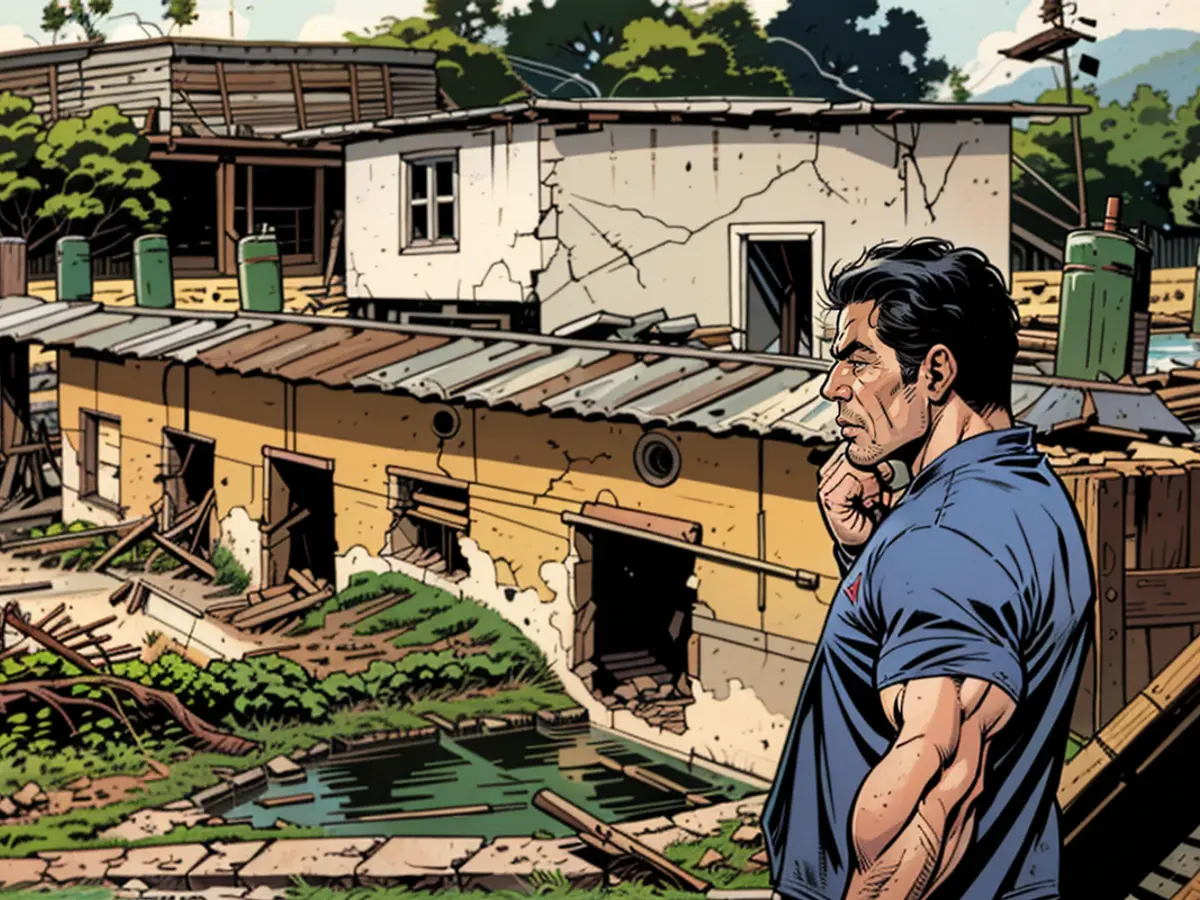More than 150 dead after landslides in southern India - Heavy rains continue
The death toll could therefore continue to rise. Rescue and recovery operations were hindered by persistent heavy rain and strong winds. Additionally, roads in the affected district of Wayanad in the state of Kerala were blocked due to landslides and flooding.
To make matters worse, the only bridge between the particularly hard-hit villages of Chooralmala and Mundakkai was washed away. Rescue teams had to use an improvised zip-line to transport bodies on stretchers.
Volunteer helper Arun Dev told AFP that some people who had fled the landslides ended up stranded at a river that had burst its banks. "Those who escaped were swept away with houses, temples, and schools," he said.
Most of the fatalities were tea plantation workers and their families. Several accommodations were buried under mudslides while seasonal workers and their families were sleeping. The landslides were preceded by days of monsoon rain.
Wayanad is known for its tea plantations that span the hilly terrain. Many workers are needed for planting and harvesting tea. Some of the plantations were hit by two landslides in a row on Tuesday. After the incidents, over 3000 people were housed in relief camps around Wayanad, according to the Kerala government.
Tea plantation worker Kedarbai told AFP that she was woken up by the noise of the landslide and had just enough time to flee her accommodation with her young child. "It was like the blast of a huge bomb," said the 30-year-old. "We're lucky to be alive."
According to Kerala Chief Minister Pinarayi Vijayan, at least 57.2 centimeters of rain fell in Wayanad over the two days before the landslides. The regional disaster management authority reported that more rain and strong winds are expected on Thursday, posing a risk of damage to unstable structures even outside of Wayanad.
In South Asia, monsoon rains from June to September are crucial for replenishing water supplies but also regularly cause flooding and destruction. Researchers attribute this to human-induced climate change, which leads to heavier and less predictable rainfall. Deforestation and dam construction also exacerbate the impacts of rainfall.
The excessive rainfall contributed to the landslides and flooding, making the rescue operations even more challenging. Subsequently, the increased rainfall predicted for Thursday could potentially lead to further damage to already unstable structures in the region.







